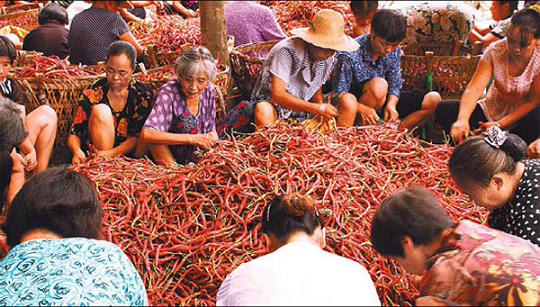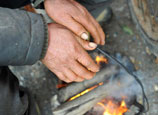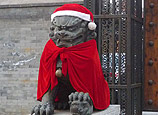
 |
| The documentary raised awareness of many regional cooking ingredients like these red peppers from Sichuan. (Zhao Xia/ China Daily) |
At the same time, it also showcases regional foods, the best memories for the hundreds of thousands of Chinese people who have traveled far from their hometowns to work and live in the cities," he says.
The documentary motivated buying sprees on the Internet - for Yunnan's black truffles and its Nuodeng ham, and Jianshui's fermented bean curd. The country's biggest Internet business portal reported increased transactions of produce that had been featured on the documentary.
Regional cuisine styles such as those from Yunnan and Anhui provinces became more popular, and many restaurants borrowed the catch phrase from the TV series by boasting about "A Bite of Hangzhou", or "A Bite of Henan".
Xibei Oats Village, a northwest Chinese specialist restaurant, has appointed Huang Guosheng as its image ambassador.
Huang is a country farmer and millet bread baker who had appeared in A Bite of China. The episode showed him milling the flour, kneading the dough and steaming the bread before cycling to the nearest city with his freshly made buns.
Chain restaurant Xibei paid him 300,000 yuan ($48,116) as its spokesman, and invited him to teach its chefs how to make his millet bread, now available at all its outlets in the country at 3 yuan per loaf.
Although some critics say millet bread is only authentic in northern Shaanxi, where Huang comes from, Huang seems to have benefited from the deal.
He said he would build a big house with the money, so his family members can all live under one roof.
Chong Zhanming, who determines the professional skills of chefs in Beijing, says A Bite of China has inspired a love for traditional food while deepening the understanding of regional ingredients among chefs.


















 Students take exams without invigilator in Hangzhou
Students take exams without invigilator in Hangzhou


![]()
